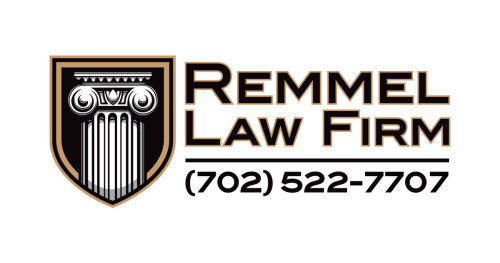Best Class Action Lawyers in New Mexico
Share your needs with us, get contacted by law firms.
Free. Takes 2 min.
Or refine your search by selecting a city:
List of the best lawyers in New Mexico, United States
About Class Action Law in New Mexico, United States
A class action lawsuit is a legal process that allows one or more people to file and prosecute a lawsuit on behalf of a larger group, or "class," of individuals with similar claims. In New Mexico, class actions provide an avenue for consumers, employees, or other groups to address widespread harm that would be impractical for individuals to pursue separately. These cases can involve a range of issues such as defective products, consumer fraud, wage disputes, environmental harm, and more. By combining claims, class actions aim to increase efficiency, reduce costs, and promote consistent outcomes for similarly situated people.
Why You May Need a Lawyer
Class action lawsuits can be complex and require in-depth knowledge of specific rules and procedures. You might need a class action lawyer in New Mexico if you have experienced harm that also affected others, and individual lawsuits would not be practical or cost-effective. Common situations where legal help is essential include:
- When a company’s product or service has harmed many consumers in a similar way
- If you and your coworkers have suffered wage or overtime violations as a group
- Cases involving discrimination or civil rights violations against a class of people
- Environmental contamination affecting residents of a community
- Healthcare or pharmaceutical claims impacting many patients
Lawyers knowledgeable in class action litigation can evaluate the merits of your case, guide you through the certification process, represent the group in court, and help ensure a fair settlement or judgment.
Local Laws Overview
Class action lawsuits in New Mexico are governed by both state and federal rules, depending on where the case is filed. At the state level, New Mexico’s rules are primarily set forth in the New Mexico Rules of Civil Procedure, specifically Rule 1-023. This rule outlines the requirements for filing and maintaining a class action, including certification of the class, adequacy of representation, and notice to class members.
Federal class actions are governed by Rule 23 of the Federal Rules of Civil Procedure. The choice between state and federal court can significantly affect the handling and outcome of a case. Key aspects of local law relevant to class actions in New Mexico include:
- Requirements for class certification, including numerosity, commonality, typicality, and adequacy of representation
- The need for courts to approve settlements and attorney fees
- Notification process for potential class members
- Rules related to statute of limitations and filing deadlines
- Remedies that may include damages, injunctive relief, or restitution
Frequently Asked Questions
What is a class action lawsuit?
A class action lawsuit is a legal action where one or more individuals sue on behalf of a larger group of people with similar claims, allowing courts to resolve common issues in a single case.
Who can be part of a class action in New Mexico?
Any person who has suffered similar harm as described in the lawsuit may be included in the class, either by default or by opting into or out of the class depending on the case type and court orders.
How is a class certified in New Mexico courts?
The court must determine that there are enough members in the class, that legal or factual issues are common among members, that the claims are typical, and that the class representatives and their lawyers will fairly and adequately protect the class’s interests.
Do I have to pay upfront to join a class action?
Usually, class action lawyers work on a contingency fee basis, meaning you pay nothing upfront. Fees are taken from any settlement or judgment awarded to the class.
How will I know if I am part of a class action?
Class members are typically notified by mail, email, publication, or other means ordered by the court. The notice will explain your rights and options.
Can I start my own lawsuit if I am part of a class action?
Generally, if you remain in the class, you give up the right to bring your own individual lawsuit on the same issues. You can usually opt out if you want to preserve your right to sue on your own.
What types of cases are commonly brought as class actions in New Mexico?
Common cases include consumer fraud, defective products, employment law violations, environmental damage, antitrust issues, and securities fraud.
How long does a class action lawsuit take?
Class action lawsuits are often complex and can take several months to several years to resolve, depending on the case’s complexity and court schedule.
How are settlements distributed to class members?
If there is a settlement or favorable judgment, class members who file valid claims may receive compensation, either as a direct payment or in another form, depending on the settlement terms.
Do I need a lawyer to be part of a class action?
You do not need to hire your own lawyer to be included as a class member, but consulting with an attorney can help you understand your rights and options, especially if you wish to opt out or have related claims.
Additional Resources
For more information on class actions in New Mexico, consider reaching out to the following organizations:
- New Mexico Attorney General’s Office - Consumer Protection Division
- New Mexico State Bar Association - Lawyer Referral Services
- New Mexico Administrative Office of the Courts - Court Self-Help Center
- Legal Aid of New Mexico
- Federal courts in New Mexico for federal class action matters
Next Steps
If you believe you may have a class action claim or have received notice of a class action involving your interests, consider taking the following steps:
- Collect any documents, receipts, contracts, or other evidence related to your claim
- Contact a qualified class action attorney to discuss your situation
- Review any notices you receive carefully and keep track of deadlines for joining, opting out, or making claims
- Consult resources like legal aid, the Attorney General’s office, or local bar association for additional guidance
- Stay informed as the case develops to ensure you protect your rights and know your options throughout the process
Lawzana helps you find the best lawyers and law firms in New Mexico through a curated and pre-screened list of qualified legal professionals. Our platform offers rankings and detailed profiles of attorneys and law firms, allowing you to compare based on practice areas, including Class Action, experience, and client feedback.
Each profile includes a description of the firm's areas of practice, client reviews, team members and partners, year of establishment, spoken languages, office locations, contact information, social media presence, and any published articles or resources. Most firms on our platform speak English and are experienced in both local and international legal matters.
Get a quote from top-rated law firms in New Mexico, United States — quickly, securely, and without unnecessary hassle.
Disclaimer:
The information provided on this page is for general informational purposes only and does not constitute legal advice. While we strive to ensure the accuracy and relevance of the content, legal information may change over time, and interpretations of the law can vary. You should always consult with a qualified legal professional for advice specific to your situation.
We disclaim all liability for actions taken or not taken based on the content of this page. If you believe any information is incorrect or outdated, please contact us, and we will review and update it where appropriate.
Browse class action law firms by city in New Mexico
Refine your search by selecting a city.

















